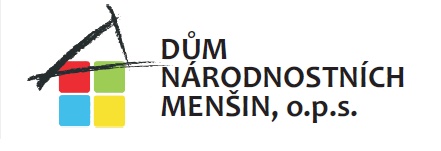The House of National Minorities (DNM) is a Prague facility which facilitates inter-ethnic understanding and overcoming of any prejudices that citizens might have regarding certain ethnic groups and nationalities. The primary work involves activities of national minorities in Prague (Bulgarian, Hungarian, German, Polish, Roma, Ruthenian, Russian, Greek, Slovak, Serbian and Ukrainian).
The communication and cooperation with the children and the youth of Prague schools and other leisure-time educational and cultural institutions plays a very important role in the activities of DNM. These activities will be contingent upon the capacity and programmes of the House of National Minorities in Prague, so that the fulfilment of the activities of national minorities comes first. House of National Minorities also cooperates with other organizations with a multicultural focus and organizations that integrate foreigners.
DNM regularly offers programmes for adults, for children and youth such as visits to the exhibitions of national minorities artists, viewing the films with topics of minorities, meetings and club evenings with representatives of national minority civic associations, selected cultural programmes produced in the House of National Minorities, conferences, meetings and seminars dealing with the issue of national minorities, cultural programmes for primary and secondary schools (theatrical performances, educational concerts, lectures, and screenings), language courses and the mediation of contacts and information.
The House of National Minorities is a unique institution in the Czech Republic and indeed even in Europe. It is not customary for the civic associations of national minorities and the editors of their magazine to be housed in the same place. Individual associations furthermore use for their educational, cultural and social activities shared spaces such as a gallery, community hall (cinema), meeting room, coffee shop and library.
The House is home to organizations representing a total of 11 national minorities: Slovak, Polish, German, Roma, Ruthenian, Ukrainian, Russian, Hungarian, Serbian, Bulgarian and Greek. In somewhat simplified terms, one could say that our House is a place where our minorities constitute a majority.

